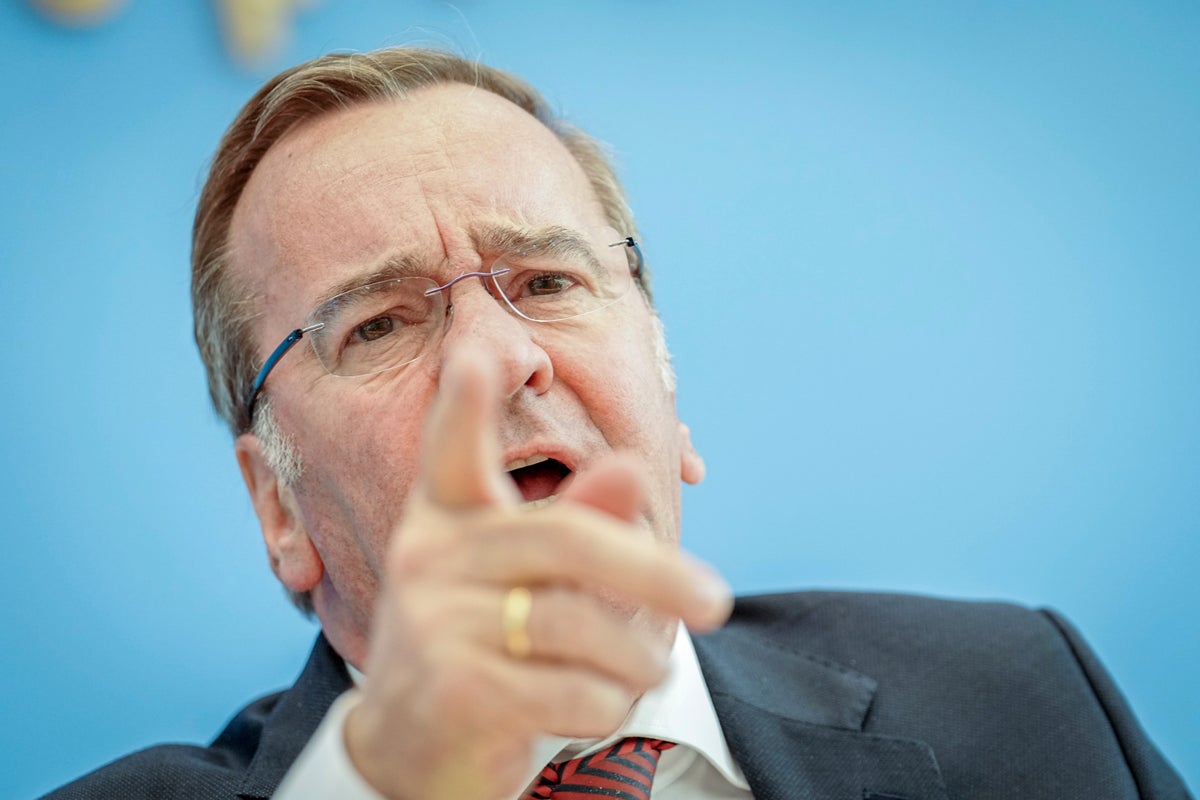
Germany's defense minister announced on Wednesday plans for new legislation that would help refill the depleted ranks of the armed forces to bolster the country's defense capabilities.
Boris Pistorius said the proposed bill would allow the government to send letters to all young men who turn 18 — about 400,000 every year — asking about their willingness and ability to serve in the military.
Under the law, those who receive the letter would have to fill out the questions. The army would then invite those interested in serving for a medical checkup and choose the most qualified to serve in the military for a period of 6-23 months.
Speaking to reporters in Berlin, Pistorius explained that the threat levels have changed from what they were a few years ago.
“Russia has now been waging a war against Ukraine for two and a half years — it is not only calling the rules-based international order into question, it is destroying it," he said. “This is a new threat situation.”
The campaign is part of efforts to boost active forces numbers to 203,000 from the current just under 181,000 figure. Germany had over 500,000 troops during the Cold War.
If the bill passes, the new military service would still be voluntary and a far cry from compulsory conscription for young men, which was suspended in Germany in 2011, after 55 years. Since then, there has been no mandatory military and civilian service in the country.
Germany’s conscription act still stipulates that compulsory military service for men can be revived if the parliament declares a state of emergency for defense.
Women who turn 18 would also receive the letters, Pistorius said, but would not be obliged to answer, since Germany's constitution does not foresee mandatory service for them.
After Russia launched its full-scale invasion of Ukraine in 2022, leading to one of most brutal wars in Europe since World War II, calls have steadily grown in Germany to reintroduce some kind of military service to be better prepared for possible future wars.
Only days after Russia attacked Ukraine, German Chancellor Olaf Scholz pledged to increase Germany’s defense spending to a NATO target of 2% of gross domestic product and set up the 100 billion-euro ($107 billion) special fund. He said that the invasion marked a “turning point.”
Pistorius himself has repeatedly said that Germany must become “fit for war” in order to be able to act as a credible deterrent together with its NATO allies.
If the proposal becomes law, Pistorius expects that of the about 400,000 young men who fill out the questionnaire each year, around a quarter would express an interest in serving in the military. Of those, the army is likely to choose 5,000 most qualified men but hopes to increase that number in the long-term.
Germany's lack of military personnel and equipment is a known problem. In March, the parliament's commissioner for the armed forces said in her annual report that Germany’s military still has “too little of everything.”
“The Bundeswehr is aging and shrinking,” Eva Hoegl said and acknowledged at the time that “the issue of personnel has very clearly arrived on the political agenda.”
In the face of perceived growing threats by Russia, other European countries are also considering new forms of military service.
In Britain, the governing Conservative Party said in May that all 18-year-olds in the country would have to perform a year of mandatory military or civilian national service if it wins the July 4 national election.







